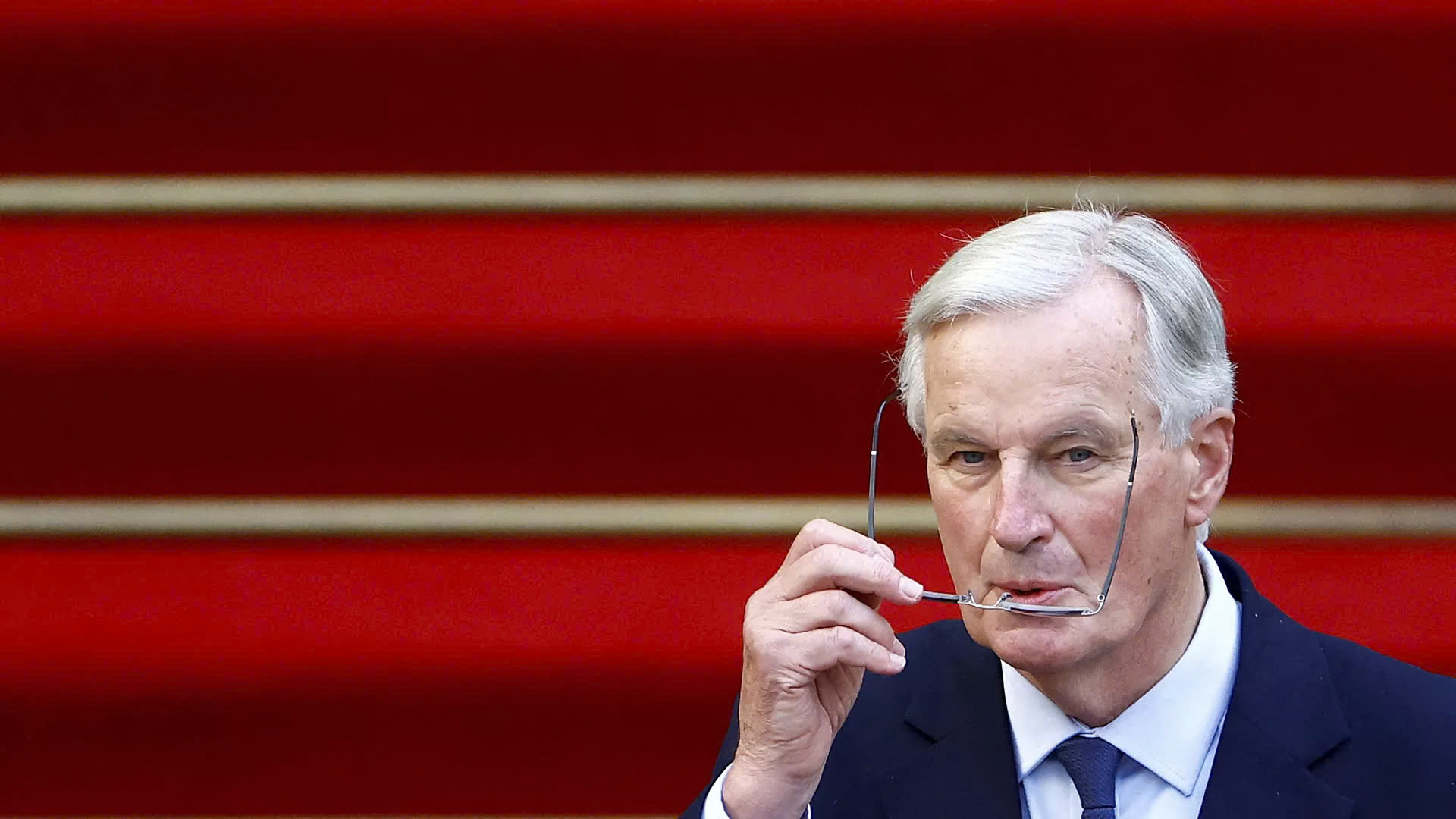Contents of Prime Minister Michel Barnier's budget plan
On October 10, Prime Minister Michel Barnier's government presented France's 2025 budget plan, which includes harsh austerity measures with the goal of reducing costs by 60.6 billion euros by 2025, equivalent to 2% of France's GDP.
This is deemed necessary because in June, the European Commission initiated sanctions against France and six other EU countries, including Italy and Belgium, due to their excessive budget deficits. According to EU financial rules, the imbalance in the national budget must not exceed 3% of GDP and public debt must not exceed 60%. In France, the budget deficit, according to estimates by the country's Interior Ministry , is nearly 6.1% of GDP and public debt has increased to 110% (about 3.1 trillion euros).
Paris was supposed to submit its budget plan to Brussels by September 20. However, after the summer French parliamentary elections ended in defeat for President Emmanuel Macron's supporters, France went two months without a new cabinet - the last government was only formed on September 22. In this regard, France asked the European Commission for a delay.

French Prime Minister Michel Barnier. Photo: Reuters
According to the plan, France will save 40 billion euros by cutting government spending and will attract another 20 billion euros by raising taxes on large corporations and wealthy French people (a minimum of 20% for individuals earning 250,000 euros a year or couples, which is double the number). According to the French government's estimates, this measure will affect 65,000 people and about 440 large companies.
The French government believes that these initiatives will not affect the vast majority of the middle class and will not lead to an economic recession. “These tax measures will not affect low-income, middle-class and working people. This is a path that eliminates any threat of tax or austerity measures. There is no ambiguity in this. We will not improve the state budget situation by destroying growth,” Budget Minister Laurent Saint-Martin said on October 10.
However, the austerity measures could hit areas that are very sensitive to the French people. In particular, the French government has proposed cutting healthcare costs by 3.8 billion euros, as well as delaying pension increases despite rising inflation. The cabinet has also proposed reducing civil servants' salaries and reducing the total costs of local governments by around 5 billion euros.
Budget Minister Saint-Martin explained that the gradual abolition of social protection measures introduced during the pandemic was planned, including the so-called “tariff shield”, which was intended to prevent an increase in electricity prices for the poorest sections of France.
The austerity measures will not, however, affect the defence sector. French military spending next year, according to the cabinet’s plans, could increase by 3.3 billion euros and reach 2% of GDP. According to AFP, spending on weapons is expected to increase by 16% to 10.6 billion euros, while funding for nuclear deterrence could rise to 7 billion euros, up 8% from 2024.
According to the French government's plans, the new measures will help reduce the budget deficit to 148 billion euros - total budget revenues next year will be 536 billion euros and expenses will be 684 billion euros.
French politics facing instability?
The proposals to reduce the budget deficit put forward by Prime Minister Michel Barnier's cabinet carry high political risks. Le Monde noted that the government has faced criticism from all political forces in France, although the uncontrollable deficit and rising public debt are directly linked to the government's inability to adequately finance social obligations.
The national budget law should be passed before the end of the year. If the French government fails to secure a majority in the divided parliament, it will have to invoke Article 49.3 of the French constitution, which allows bills to be passed without a vote in parliament, raising the possibility of a vote of no confidence in Prime Minister Michel Barnier's government.
In fact, shortly after taking office, Prime Minister Michel Barnier faced his first fierce attack from the left. On October 8, the government of new Prime Minister Michel Barnier survived the first vote of no confidence in the French National Assembly, following a petition by left-wing lawmakers.
“This is the most severe austerity plan this country has ever seen,” said Manuel Bompard, a lawmaker from France’s far-left Invictus Party (LFI) who heads the finance committee of the French lower house of parliament. He believes the new measures will slow economic growth and worsen poverty in France.
Meanwhile, National Front (RN) party spokesman Jean-Philippe Tanguy called Prime Minister Michel Barnier's plan "a bad initiative". "All we see is financial injustice and no lasting improvement in the country's financial situation", he said. RN has rejected the Barnier government's proposal to delay pension reforms for six months to save 4 billion euros.
Pavel Timofeev, an expert at the Institute of International Economics and Foreign Relations (IMEMO), Russian Academy of Sciences, believes that it is too early to say whether the far right will support the left-wing initiatives to oust Barnier's government. "Although the right is not satisfied with the deficit reduction measures proposed by the government, the collapse of the cabinet of Michel Barnier, a right-wing politician, is not in their favor. It is very likely that Ms. Le Pen's RN party will continue to support Michel Barnier as a temporary solution," he said.
The expert agrees that the new French prime minister is in an extremely difficult position: the financial measures he proposes are likely to provoke a wave of protests. “However, even if the left succeeds in bringing people to the streets, it is difficult to say whether they will achieve their goals. We should not forget that a whole campaign was launched against the reform related to raising the retirement age. However, President Macron tried to push this initiative,” Timofeev noted.
According to him, the fate of Prime Minister Michel Barnier's cabinet will largely depend on whether he can explain the feasibility of austerity measures to the public and businesses, as well as build a dialogue with unions. As the expert notes, if the announced deficit reduction measures cannot be implemented, this will seriously affect not only Prime Minister Barnier, but also the President's supporters.
“President Macron is probably trying to use the combination of centrists and rightists to share the cost of these unpopular measures. In this case, Macron himself does not face serious consequences, because, as they say, he only needs to wait until 2027, when the presidential elections are scheduled. But who among the other centrist politicians can take the helm will largely depend on their attitude to the measures taken to reduce the deficit. The French will certainly remember this,” Timofeev warned.
Ha Anh
Source: https://www.congluan.vn/ly-do-phap-de-xuat-thue-danh-nguoi-giau-va-that-lung-buoc-bung-post316741.html


![[Photo] Prime Minister Pham Minh Chinh chairs meeting on science and technology development](https://vphoto.vietnam.vn/thumb/1200x675/vietnam/resource/IMAGE/2025/5/17/ae80dd74c384439789b12013c738a045)
![[Photo] More than 17,000 candidates participate in the 2025 SPT Competency Assessment Test of Hanoi National University of Education](https://vphoto.vietnam.vn/thumb/1200x675/vietnam/resource/IMAGE/2025/5/17/e538d9a1636c407cbb211b314e6303fd)

![[Photo] Readers line up to visit the photo exhibition and receive a special publication commemorating the 135th birthday of President Ho Chi Minh at Nhan Dan Newspaper](https://vphoto.vietnam.vn/thumb/1200x675/vietnam/resource/IMAGE/2025/5/17/85b3197fc6bd43e6a9ee4db15101005b)
































![[Photo] Nearly 3,000 students moved by stories about soldiers](https://vphoto.vietnam.vn/thumb/1200x675/vietnam/resource/IMAGE/2025/5/17/21da57c8241e42438b423eaa37215e0e)





































































Comment (0)